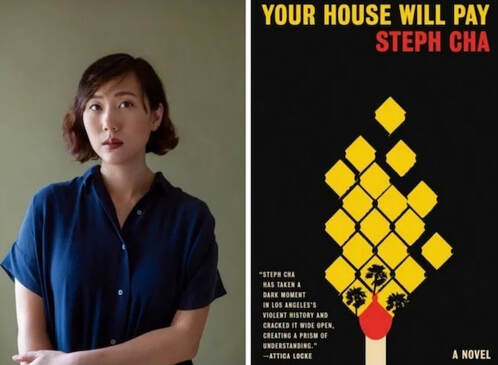|
In 2019, two Korean siblings, Miriam and Grace Park who are both in their twenties, and like many others their age, they are grappling on a social level of the shooting of a black teen by a Los Angeles police officer. This is not new for Miriam, who is a bit of a vocal activist and challenges her sister to sympathize with victims, be a voice for the voiceless. Personally, they have challenges within their family as Miram is estranged from her parents for some unknown reason, leaving Grace who is a dutiful daughter, caught in between. At the same time in a very different part of LA, Shawn Matthews has just welcomed his cousin Ray back home to his young family after his release from prison. Not long after Ray’s release, another devastating crime takes place that causes both the Park and Matthews families to converge while grappling with events from more than twenty years earlier when Shawn’s sister, Ava, had been shot and killed while shopping in a convenience store not far from their home. Shawn was in the store with his older sister at the time of the shooting, so not only did he lose his sibling of whom he was close, but he witnessed the volatile and controversial exchange between her and the store owner, and her horrific death.
Decades later the moment and the loss still haunts him, maybe even more so since he has a wife and toddler daughter. He also looked after his Ray’s wife and young teen children while Ray was imprisoned, giving him an impenetrable bond to the extended family. For many reasons the current crime that connects the Parks and Matthews families will rock their world, past and present. The reader is taken smoothly back forth to both crimes and time periods, easily connecting to each character and situation. Every motive, victim, perpetrator, situation is explained and experienced through third person perspective. This novel is immediate, explosive and disturbing, causing readers to look at violence and all the victims in ways not previously considered. With “Your House Will Pay,” novelist Step Cha deftly takes elements of an actual dark, violent moment in LA’s history and weaves into fictionalized narrative that is pivotal and without bias. Once you begin the story, you can’t put it down or look away. It is a compelling look at the history of violence in a family and throughout a community. It also shows that there is nothing black and white about such crimes and their victims, and there are no easy solutions. There is a particularly striking section toward the novel’s end when divergent communities grapple with the aftermath of violence and crime, and demand justice. There is an undeniable fervor building between the clashing groups when two of the younger members of the Matthews and Park household spy out an opportunity for a personal exchange hidden in plain sight from the crowd. Shawn had observed the exchange of the two, with the backdrop of electric atmosphere that exploded. He remembered those six days of violence, fire and havoc wherever he looked, stumbling bodies and stunned, bleeding faces. He watched his city go up in flames, and under the sadness and rage, exhilaration of rampage, he recognized the sparkle of hope. Rebirth- that was the promise of destruction. The olive branch, the rainbow, the good men spared to rebuild the earth. But where was the new city? And who were the good men? Los Angeles, this ws supposed to be it. The end of the frontier, land of sunshine, promised land. Last stop for the immigrant, the refugee, the fugitive, the pioneer. It was Shawn’s home, where his mother and sister had lived and died. But he had left, and so had most of the people he knew. Chased out, priced out, native children living in exile. And he saw the fear and rancor here, in the ones who’d stayed. This city of good feeling, of tolerance and progress and loving thy neighbor, was also a city that shunned and starved and killed its own. This type of powerful, searing prose is laced throughout the novel. Cha displays a rare and wonderful talent for a young, emerging writer, and “Your House” is an impressive and welcome transition from her usual noir fiction to literary fiction. Whatever genre she works in, it’s worth experiencing.
0 Comments
|
Archives
January 2024
Categories |

 RSS Feed
RSS Feed